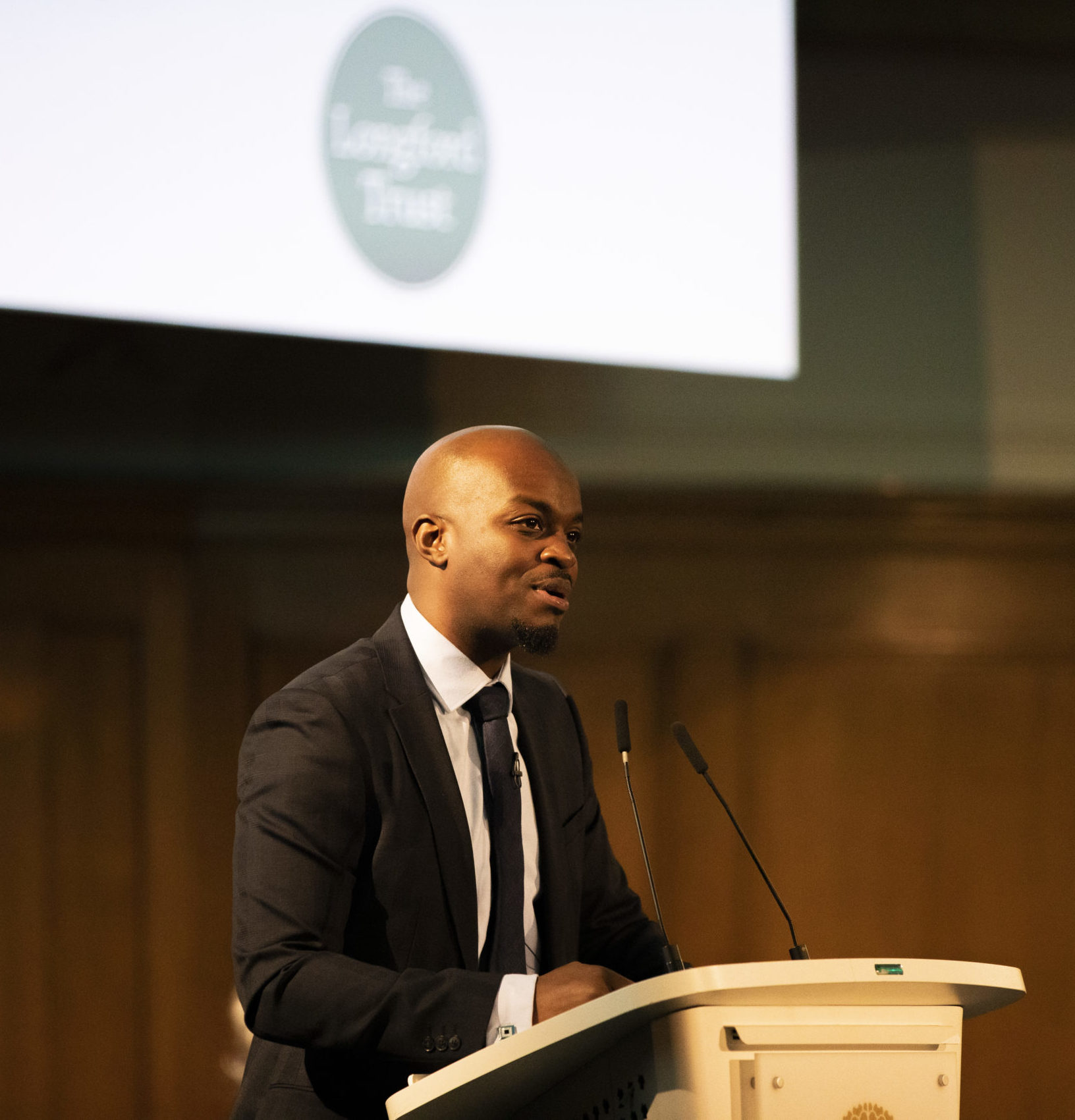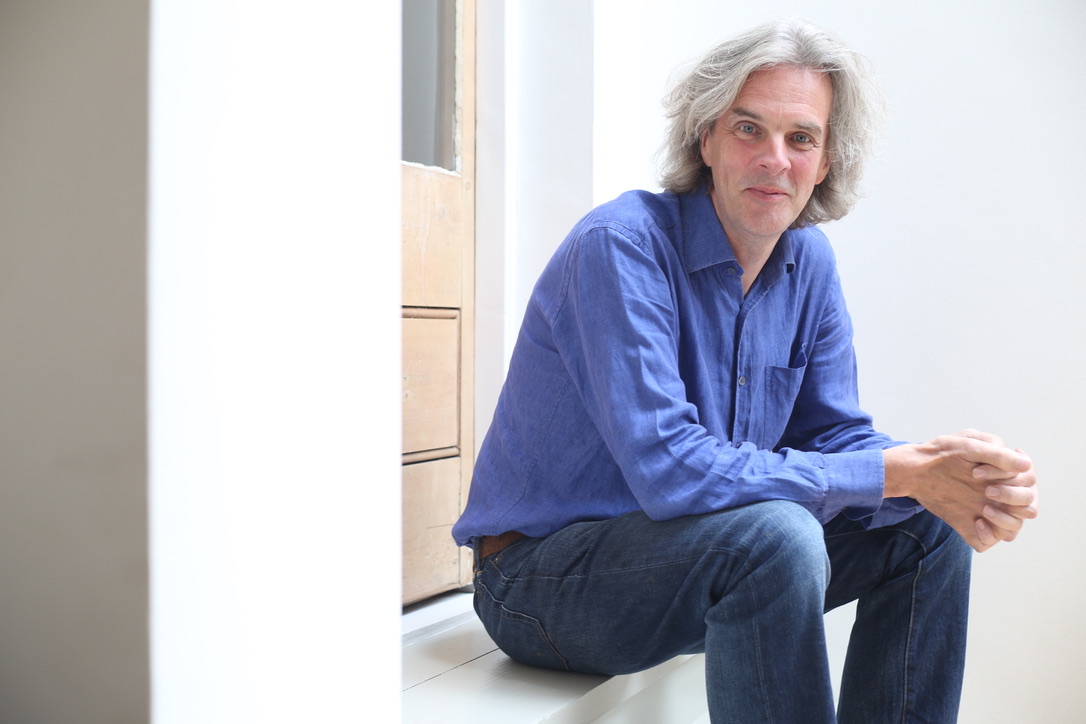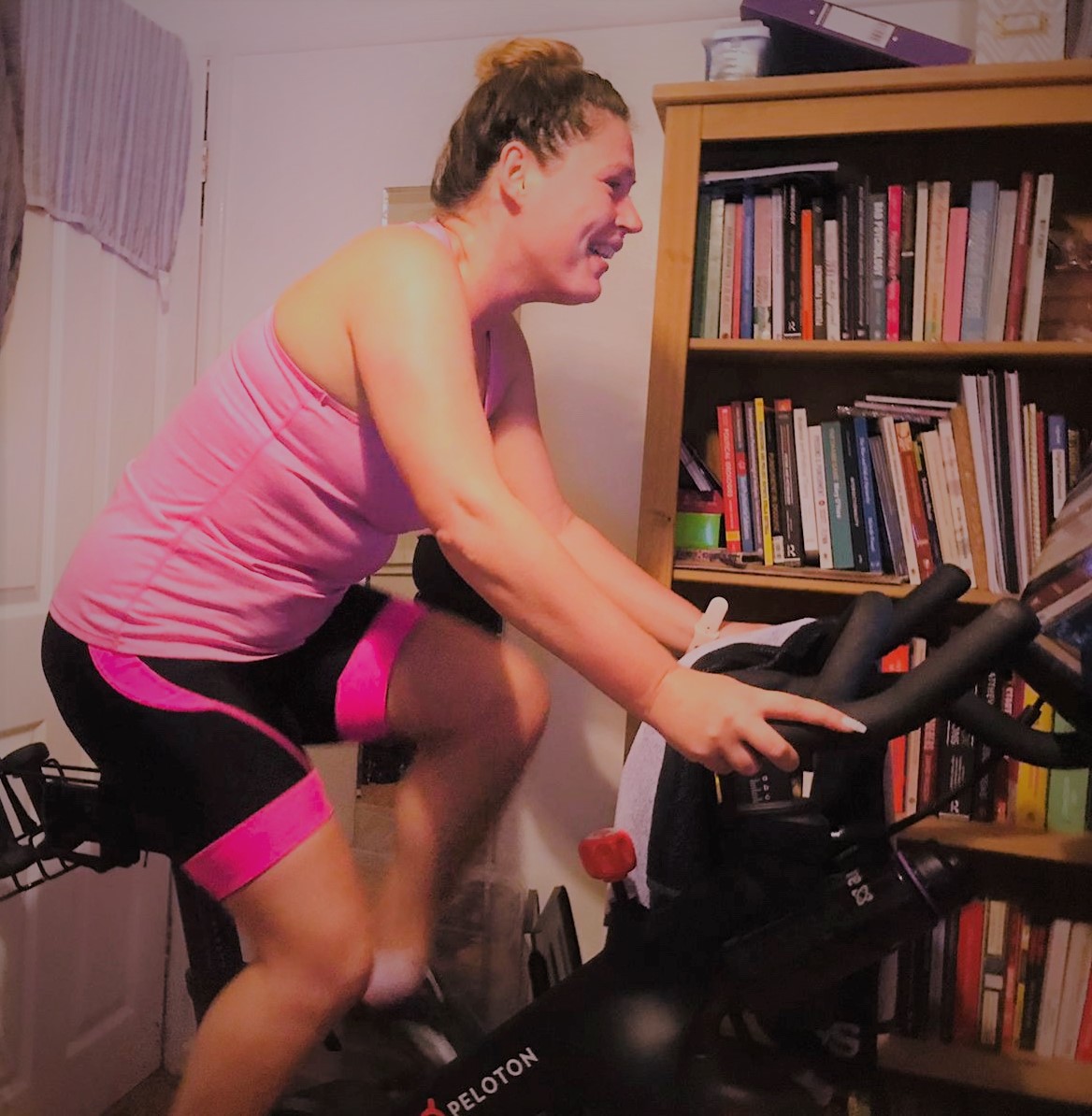
Why George the Poet almost moved me to tears
November 2021 saw the return of the Longford Lecture on prison reform. Spoken word artist George the Poet headlined as guest speaker, declaring ‘the game is rigged’ and calling for prisons to become ‘development centres’.
He began, however, with a message for the music industry. Longford scholar Kyle was in the audience….
Hello, my name is Kyle and I am a third year scholar, currently completing a Mathematics degree. To be honest, I see myself as a numbers guy more than a crafter of words but after being moved almost to tears by George the Poet at the 19th annual Longford lecture, I wanted to take a moment to put down my take on a memorable evening. And reflect on why his words meant so much to me.
This was my first Longford lecture. Amazing.
For a start, it was refreshing to see so many people who believe in change and rehabilitation gathering in Westminster from all different walks of life, many I suspect like my mum who came with me, may have been hearing George Mpanga (the Cambridge University- educated spoken word artist and social commentator famous for the Have you heard George’s podcast) for the first time.
The 500 or so people were gathering after a two year break due to Covid-19 with a common purpose of rehabilitation, with a shared belief in second chances. As someone who spent time inside myself, knowing the event was being aired into cells nationwide sent a powerful message, ‘you may be out of sight, but you are very much in mind.’
So what did I make of George on the night?
George, as I know from following him for many years, has passionate views about what happens in our prisons, about the urgent need for reform and rehabilitation. He’d hinted at what he was going to say in an in-depth interview in the Observer newspaper but nothing prepares you for the mesmerising in-person performance (which you can watch again here).
‘RAP’S NOT MUSIC!’ he declared.
He’d begun with a sentence which smoothly blended into a rap and then I realised: he’s rapping, this is a poem!
The first quote which struck me was,
‘Rap is a commodity, got to be the best thing adapted by poverty.
So if so many have seen a pay-out, why aren’t the communities guaranteed a way out?’ from his 2015 poem Rap’s Not Music.
When I talked to my mum afterwards I realised she, may be like others in the audience, may have been in the dark about what George was trying to get across.
It boils down to this. Often in RAP music artists talk about their upbringing, a common reality of drugs, struggles, violence, no support. Prison and trauma are part of their everyday reality and reflect the environment they grew up in.
I agree with what George says about commodity, he articulates a worrying distortion. RAP music is from a minority, typically born of poverty ‘on the streets’ but attracts the majority. These minority issues aren’t usually addressed or spoken about. So, it’s powerful when people voice their situation and problems through the art of music.
But homegrown RAP music is BIG business, with the biggest market share of streamed music in the United Kingdom. It’s frustrating people are listening but not understanding the symptoms of poverty.
A quick side note here. I can relate to George and his background. He went to a London boys’ grammar school where he felt out of place, travelling for more than an hour each way to a leafy suburb from his home area, a poor part of London. I remember being the only black person in my year 7 top set maths and science class at school, I’ve always been academic. It felt odd, no-one wanted to sit next to me.
May be it was because my friends were getting into trouble, some were bullies. Or may be due to race, upbringing or behaviour. I don’t know exactly. It’s hard to describe the feeling but I knew I was different from everyone in my class.
George knows what it feels like not to fit in. We need to stop people becoming lost in system.
Let’s remember the ‘The game is rigged‘ says George…’Crime and Imprisonment are predictable.’
- 54% of young people in prison have been in care
- 52% of children in police custody are from British Asian or Minority Ethnic backgrounds
Can you imagine the trauma of being in care? This trauma will often lead people to commit crimes. Whilst poorer communities struggle in self destruction, music companies are making big money, profiting from poverty.
Surely, there’s a moral duty on the music industry to make a change, to reinvest and address the community problems which sell their music.
This is such a central point I wanted to be sure my Mum had understood.
He also had important things to say about education and prisons. Back to statistics, he quoted the 34% of adult prisoners who read English below the level expected of an 11-year-old. Prisons need to change from punishment centres to development centres, a vision which most of us share.
Prison should be about second chances and changing people lives, for the better, for our communities and for a positive rehabilitation, breaking the cycle and reinvesting into our futures.
‘There are no choices without chances.’ That’s the bottom line.
Again, we need to stop people becoming lost in the system. I was that boy, like George the Poet. who didn’t quite fit in anywhere, not in school nor in my home area. I feel more that I do now. It has taken many years for me to feel accepted – a long journey with a lot of mistakes on the way.
Since my release from prison I’ve grabbed a lifeline, one where I’m pulling myself back into society, on the right side of the law.
I will be forever thankful and remember the likes of George the Poet for his inspiring words and work.
You can watch a recording of George the Poet’s speech by clicking on the link here.








